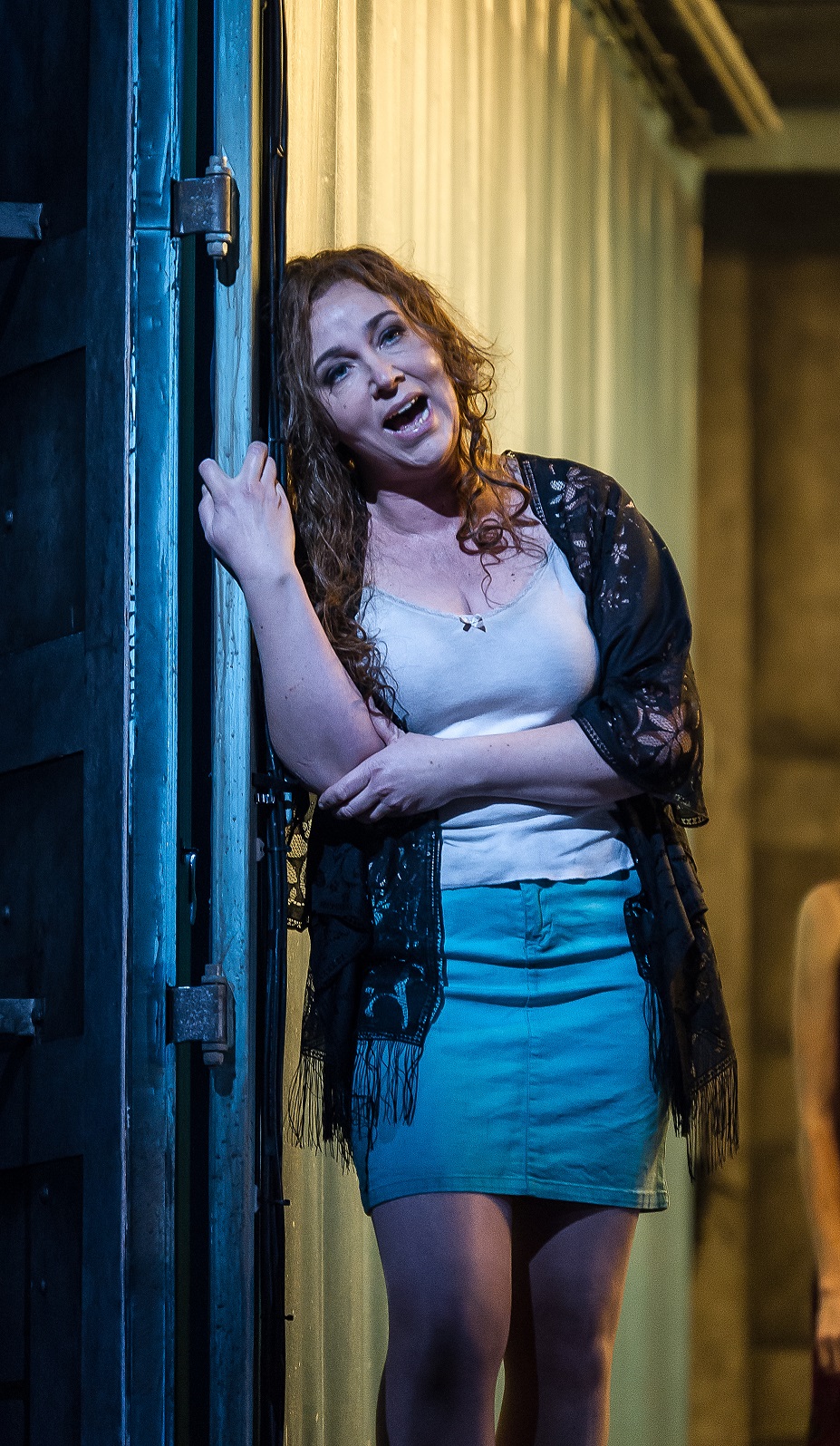"No heckling. No smoking. No making love," read the nifty video projections announcing the rise of the new Mahagonny at the Royal Opera House. Why so coy? Could they not give us a bang for our buck, or even a slow comfortable screw?
But that would be indulgent, too much like fun, or even the "culinary" entertainment of conventional opera disparaged by Bertolt Brecht when he later distanced himself from the performing version of a libretto he had part-written, part-appropriated or rewritten from contemporary sources with the help of an assistant. Director John Fulljames and his team have aimed to keep Brechtian principles ever in view while bringing the imagined location of "Amerika" up to date, though it’s the singers who punch out Jeremy Sams’s new translation with exemplary clarity; there was mostly no need for the surtitles thanks to their efforts, and Mark Wigglesworth’s careful balancing of the large pit band/small orchestra for which Kurt Weill scored his show.
 What kind of show would that be? Brecht and Weill called it an opera, they wrote it for opera houses and operatic voices and yet their text and music jab away at both their audience and the pretensions and devices and suspensions they enjoy. Even the opera’s best-known number is brutally subverted here, being sung from the back of a truck by Jenny (Christine Rice, pictured right) while her fellow prostitutes clamber out to ply their trade in the new city of pleasure. Mahagonny’s materfamilias Leokadia Begbick, as costumed by Christina Cunningham and played by Anne Sofie von Otter, is one part Bet Lynch, two parts Jenny Eclair with a dash of White Dee. The best and worst that can be said is that you’d never know it was von Otter under that wig and with such frequent recourse to the microphone. In better vocal estate on the first night was Willard White, playing her right-hand man Trinity Moses as the Samuel L Jackson character that in retrospect seems his inevitable destiny. At her left was Peter Hoare’s Fatty, impressively suave throughout.
What kind of show would that be? Brecht and Weill called it an opera, they wrote it for opera houses and operatic voices and yet their text and music jab away at both their audience and the pretensions and devices and suspensions they enjoy. Even the opera’s best-known number is brutally subverted here, being sung from the back of a truck by Jenny (Christine Rice, pictured right) while her fellow prostitutes clamber out to ply their trade in the new city of pleasure. Mahagonny’s materfamilias Leokadia Begbick, as costumed by Christina Cunningham and played by Anne Sofie von Otter, is one part Bet Lynch, two parts Jenny Eclair with a dash of White Dee. The best and worst that can be said is that you’d never know it was von Otter under that wig and with such frequent recourse to the microphone. In better vocal estate on the first night was Willard White, playing her right-hand man Trinity Moses as the Samuel L Jackson character that in retrospect seems his inevitable destiny. At her left was Peter Hoare’s Fatty, impressively suave throughout.
But the real tenor on stage was Kurt Streit’s commanding anti-hero Jimmy McIntyre. "Make love to me," pleads Jenny. "No, I’m talking here," responds Jimmy in a fairly typical exchange as he lectures the citizens of Mahagonny on the virtues of Nietzchean self-fulfilment, this time delivered from the top of the truck that forms the entire set for Act 1. Those wondering at the interval whether Brecht and Weill needed to look quite so low-rent quickly found out where the budget had gone at the start of Act 2 with another towering Es Devlin spectacular, in gleeful contravention of the scenic austerity prescribed by Brecht and his designer Caspar Neher, built from shipping crates enclosing jazz-bands, whorehouses and the tangle of wires which eventually brings Jimmy’s life to a shocking end. More projections on to their surfaces show the Alaska which Jimmy and his comrades left, and a manifesto of slogans which become more doctrinaire as the piece does: we’re left with a kitsch crucifixion and a lot of shouting, both from the chorus and the staging.
Those of us who want more from our evening at the opera than a lecture on the iniquities of religion, capitalism and man-made climate change could take real pleasure from the subtle evolution of Rice’s Jenny, who seized her moment in Act 2 with smouldering allure and grew with unBrechtian lusciousness into Jimmy’s cynically grieving widow. The mark of the piece, its problem and its relevance is that it hardly seems outrageous now as it did to audiences in 30s Germany: we live with Mahagonny, and strike our own bargains.














Add comment